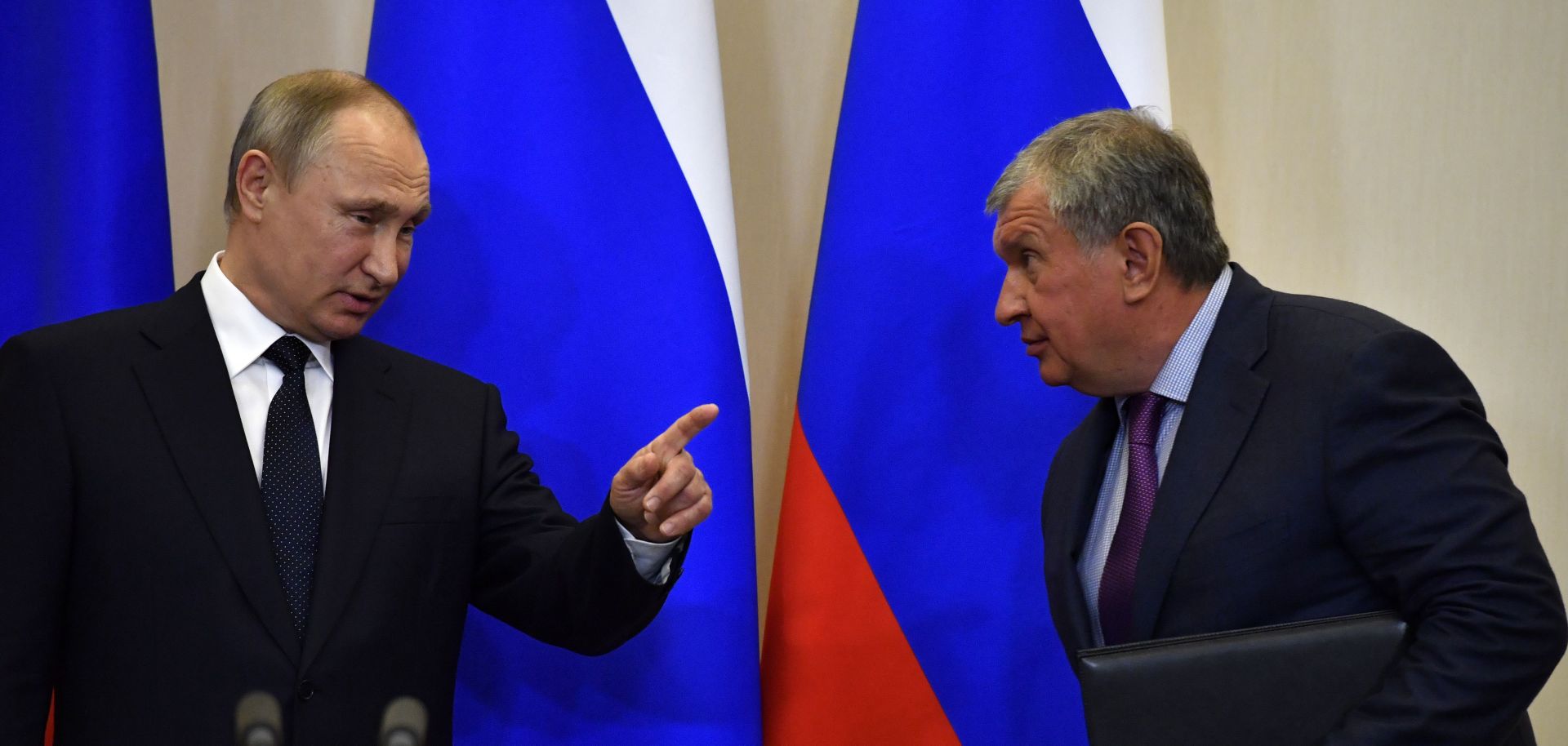ASSESSMENTS
Russian Rivalries: A Tale of Two Energy Firms
Sep 7, 2017 | 12:26 GMT

Russian President Vladimir Putin meets with Igor Sechin, the CEO of oil giant Rosneft, on May 17, 2017.
(YURI KADOBNOV/AFP/Getty Images)
Highlights
- As overall energy revenue in Russia has decreased in recent years, oil giant Rosneft has aggressively attempted to expand its influence.
- Rosneft hopes to translate its power into major changes in the energy landscape, such as ending rival Gazprom's monopoly over piped natural gas exports.
- Rosneft's increasing influence has allowed its leader, Igor Sechin, to expand beyond energy politics into conflicts with his personal rivals, which may draw a response from Russian President Vladimir Putin.
- Should Putin decide to take down Sechin, the consequences would ripple beyond the energy sector and into the larger political environs of Russia.
Subscribe Now
SubscribeAlready have an account?
